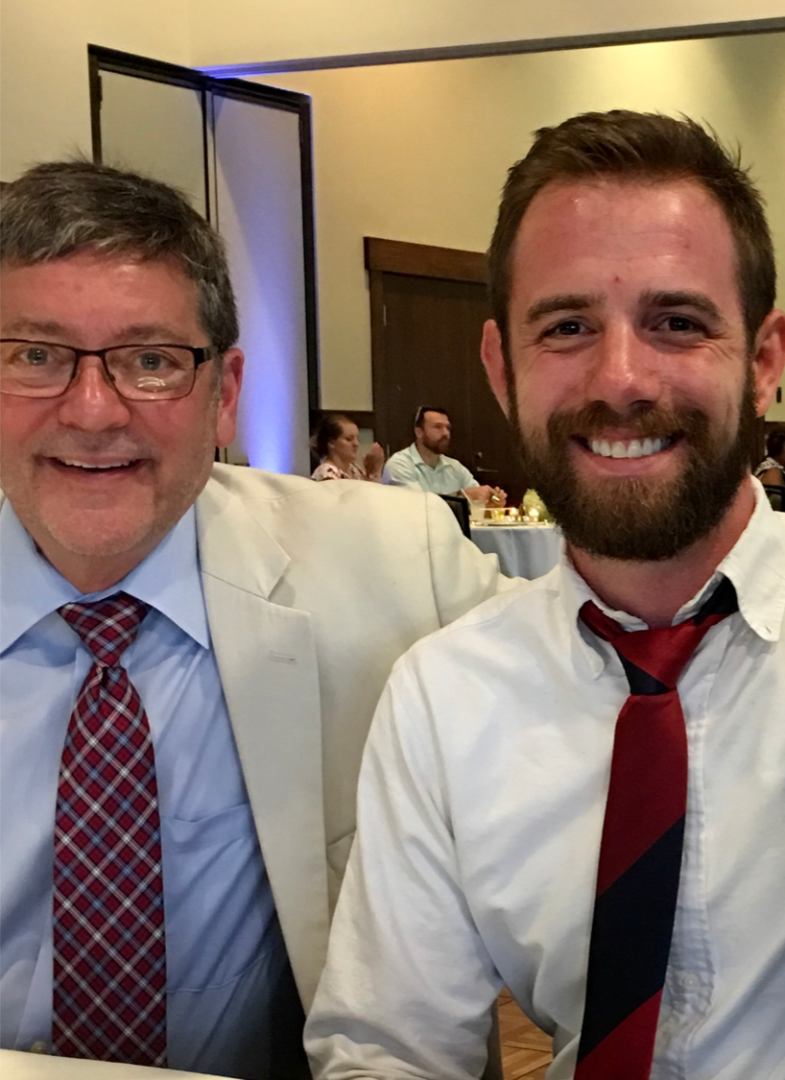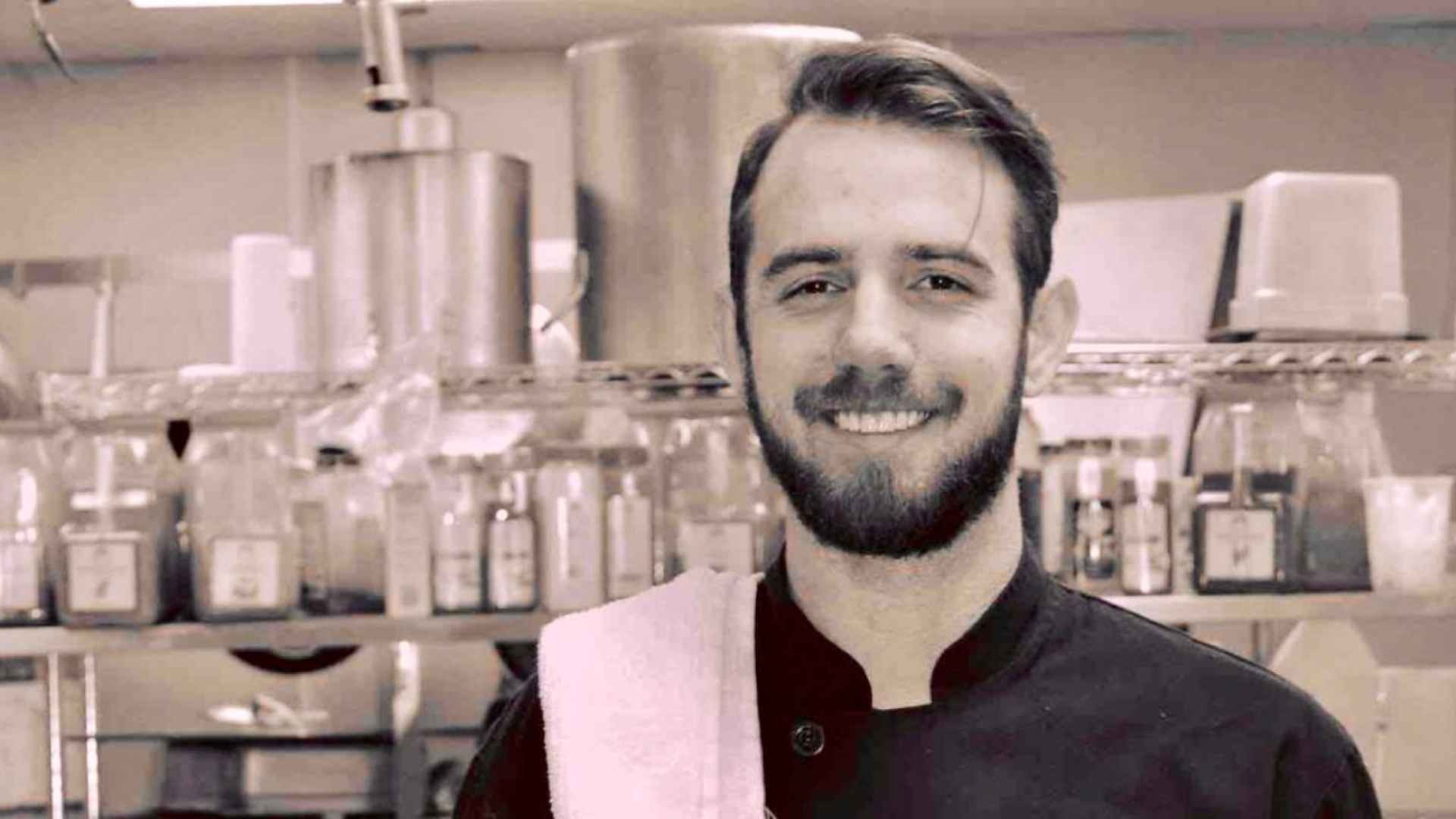Brent
A Flu Story
Place of Residence: Louisville, Kentucky
Brent’s father, Jeb, describes his son as a real “go getter” who loved the culinary arts and music. As a healthy 29-year-old, Brent was not considered to be high-risk for flu – yet he lost his life just a week after getting sick.
As a pediatrician, Jeb knows the importance of annual flu vaccination and the power of prevention. Now his mission is to raise awareness to help prevent other families from having a similar experience.
Brent’s father, Jeb, shares the story of how his 29-year-old son lost his life to flu on November 3, 2019.
How would you describe your son, Brent? What were some of his best qualities and favorite things to do?
Brent was a “go getter” his whole life. His most recent passion was the culinary arts, and he was being tutored by his mentor and friend just before his passing. Brent really enjoyed cooking. I have always been the family cook, but for a few years before his passing Brent and his twin brother took up the mantle and cooked our holiday meals. I really enjoyed watching the two of them prepare Thanksgiving dinner together, which allowed me to put my feet up and watch the parade and dog show on television. Brent was also a self-taught musician.
How did Brent become sick?
Brent was a healthy young man. I’m not sure how he got sick and his autopsy did not identify a cause of death. But after 35 years as a clinician, most of them at a Centers for Disease Control and Prevention (CDC) influenza sentinel site, I know the flu when I see it.

How did Brent’s illness progress and at what point did you know it was serious?
We were 650 miles away on vacation when Brent called us asking for an antibiotic. He said he had a sore throat, cough and a fever. He was four days into his illness and outside the 48 hours when antiviral medications are generally most helpful, so I told him to hydrate and take Tylenol or Advil and stay in touch.
We texted the next day (day 5 of his illness) and Brent was feeling a little better. I then heard from him on day 7 of his illness and he was having trouble breathing (hyperventilating) so I told him to go to urgent care. Had I known at the time just how sick Brent was I would have sent him to the emergency room.
I talked to Brent and the urgent care doctor before he was discharged and both of them sounded confident that he would be okay. There wasn’t an x-ray technician on duty that day at the urgent care so Brent was given an order to have an x-ray done the next day and was also prescribed an antibiotic.
Unfortunately, the urgent care doctor missed the fact that Brent met the criteria for systemic inflammatory response syndrome (SIRS) and his initial blood oxygen level was only 83%, yet wasn’t repeated. I believe that if they had paid attention to Brent’s vitals and had he gotten a chest x-ray, Brent would still be here today. Had Brent been hospitalized earlier in his illness, chances are he would have made a full recovery.
About four hours after his trip to urgent care, Brent’s roommate called me saying that he couldn’t rouse Brent and was calling 9-1-1. He hung up and when I called him back I could hear the paramedics working on my son.
The sounds of the monitors and the paramedics calling for more epinephrine still ring in my ears today.
Was Brent vaccinated? What do you want others to know about flu vaccination?
Brent said getting his flu vaccine was on his “to do” list, but he never got around to it. As a pediatrician, I am well aware of the benefits of vaccination. My motto in my practice was always that I never wanted to meet a parent with a sick child who ended up in the hospital with something that I could have prevented with a vaccination.

I want people to know that influenza (like COVID-19) needs to be taken seriously and that they need to vaccinate themselves and their loved ones to keep from walking down the path that I tread today and will travel for the rest of my life.
What are you doing to help raise awareness about the seriousness of flu?
I want Brent’s legacy to be my advocation for vaccination. I have told his story to the media and professional groups on several occasions and will continue to do so. I am retired now and have the time to go anywhere at any time to share my family’s story. We will continue our journey in the hopes that I can convince people to get vaccinated and save lives.
BECOME A VACCINE ADVOCATE
There are lots of ways you can make a difference in your community.

